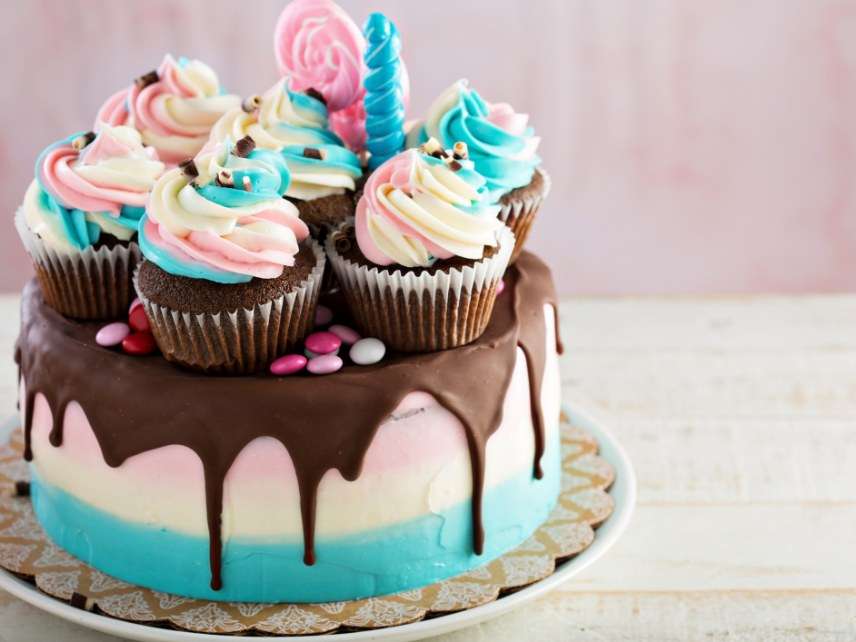Colorado and Baker End Fight Over Whether He Can Be Forced To Make a Transgender Cake
Both sides agree to stand down. First Amendment precedents were on the baker's side.

Another cake stand-off in Colorado—this time about a transgender celebration cake—appears to be coming to an end, with both sides agreeing to walk away.
Masterpiece Bakeshop of Lakewood, Colo., became a household name when owner Jack Phillips scrapped with the Colorado Civil Rights Commission after he refused to make a wedding cake for a gay couple due to religious objections to same-sex marriage.
The case made it all the way to the Supreme Court, where the justices dodged the larger issue of whether the act of making a cake is a form of free expression protected by the First Amendment. Instead, the justices ruled in a 7-2 decision that the Colorado Civil Rights Commission had not been a neutral arbiter examining the rights of all parties involved, and had, in fact, expressed hostility toward Phillips' religious rights in its decision.
While that case was making its way up the courts, a transgender attorney contacted Phillips claiming she wanted to have a custom cake made to celebrate her identity, saying she wanted one with a blue exterior and pink interior.
Phillips also has religious objections to recognizing transgender identities, and so he declined to make the cake. The lawyer, Autumn Scardina, filed a complaint with the Colorado Civil Rights Commission, who went after Phillips again. Phillips responded with a lawsuit of his own, arguing that the state was targeting him because of his religious beliefs.
Today, both the State of Colorado and Phillips have agreed to drop litigation in the case after the Commission said it would dismiss the complaint if Phillips dropped his lawsuit. Colorado Attorney General Phil Weiser seemed to realize this wasn't a test case that was going to lead to a different outcome:
"After careful consideration of the facts, both sides agreed it was not in anyone's best interest to move forward with these cases. The larger constitutional issues might well be decided down the road, but these cases will not be the vehicle for resolving them. Equal justice for all will continue to be a core value that we will uphold as we enforce our state's and nation's civil rights laws."
This was most certainly the right call by Colorado. As I noted when this case began winding through the courts, it seemed pretty clear that this was an attempt to require Phillips to create a cake that expressed a particular belief. Central to the wedding cake fight was whether a wedding cake inherently sent a message and whether the baker was being forced to express support for same-sex marriage if he was required to make a wedding cake for a gay couple. Is a wedding cake truly a message of support for same-sex marriage, or is it just a shape?
In this case, the color of the cake requested by the lawyer was clearly intended to serve as a message. There are a number of Supreme Court precedents establishing that businesses typically cannot be forced by the government to transmit or include messages with which they disagree. Bakers cannot be forced to make cakes that support transgender identities. This is a necessary component of free speech, one that also protects bakers who do not wish to make cakes that celebrate white nationalism, or transmit other kinds of messages they find offensive. It should come as no surprise that the law protects the rights of vendors. If white nationalists—or literally anyone else—wants to message with marzipan, they are free to make their own cakes.


Show Comments (197)